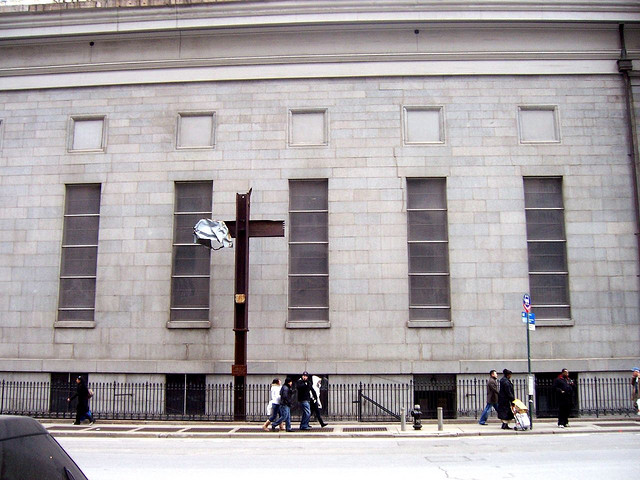Where were you on 9/11?
On Sept. 11, 2001, I couldn’t have been farther away from the event that changed the course of modern U.S. history and the biggest news story of the decade.
I was still living in Fullerton, Calif., a SAHM of three and still asleep when the first plane struck the World Trade Center. We didn’t know anything had happened until an hour later when my father-in-law called from the hotel where he and my mother-in-law were staying during a trip to visit us. My husband was getting dressed to take them to the airport to go home and I was getting our two oldest ready for school when he called. “Turn on the TV,” he said. “Something’s happened.”
Like That, Everything Changed
And just like that, what had started out as a typical school day became anything but.
My 9/11 experience was similar to that of a lot of people outside of New York, Washington D.C. or Pennsylvania. We spent the day glued to the TV, radio and Internet, trying to absorb the incomprehensible details of an unprecedented terrorist attack that left thousands dead and a nation devastated.
I’d worked as a newspaper reporter for years and lived through disasters, riots and other major events – good and bad – from inside the newsroom. I quit when baby no. 3 came along. It was strange to experience 9/11 so indirectly, far away from where the physical events were occurring and as an observer rather than as someone who’s job it was to report on what was happening.
Feeling Disconnected
That feeling of being disconnected from the events stuck with me. Because I had a family, house, volunteer obligations and such, I couldn’t drop everything and pick up the phone to report on the events, or even fly somewhere to help like some people did. Instead, I cried and prayed at church. I participated in a peace rally. I saved the now famous issue of The New Yorker with the black-on-black images of the vanished twin towers on the cover.
And life went on. A year later I was back working part-time, teaching online news writing to a room full of grad students that included one young man who’d been to Afghanistan with a nonprofit group and was motivated by his experiences to become a journalist. We discussed President George W. Bush’s campaign to get the United Nations to invade Iraq as part of his 9/11 response, events that by spring 2003 would escalate into a full fledged a war on terror that’s still going on.
Visiting Ground Zero
By 2008, my kids were grown up enough that I was working full time again, and I booked my first trip to New York in years to meet editors and writer friends. When my travel agent suggested staying at a hotel by ground zero, it seemed like the right thing to do. By then, the area where the twin towers stood was a construction site cordoned off by a high barricade, but I could see inside from the window of my 17th-floor room. The rubble we’d seen on TV was long gone, replaced by dirt, cranes, i-beams, cement forms and hard-hatted construction workers. I spent a lot of time during that trip watching them and walking around the area, reading commemorative plaques, visiting a temporary memorials, standing in front of the 9/11 cross. Seven years had passed, but the incredible sense of loss remained.
I’ve been to New York several times since then and whether intentionally or not have been to ground zero every time. The sense of loss is still there, along with the crowds of people going about the business of the day, which seems fitting: we remember, but we move on.
Going back as a journalist was fitting too. I don’t cover disasters anymore. But once again I relish that I can watch, listen and learn and report on what I observe.
What’s your 9/11 story?

I have a similar story of watching the towers fall from my bubble in northern California. When I visited Ground Zero in May 2011, I felt the strangeness of the new construction. Part of me was so glad the city had moved on but the other part of me needed to see and feel the horror of that day. I sat in the plaza across the street and tried to picture seeing a jet zoom just above the skylight. What was it like to BE there? It sounds macabre, I guess, but I don’t want to forget. It changed our landscape in so many ways.
Thanks for your poignant post.
Doesn’t sound macabre at all. There’s only so much you can get from watching something on TV.
Michelle